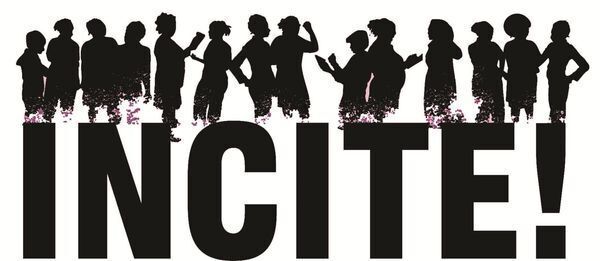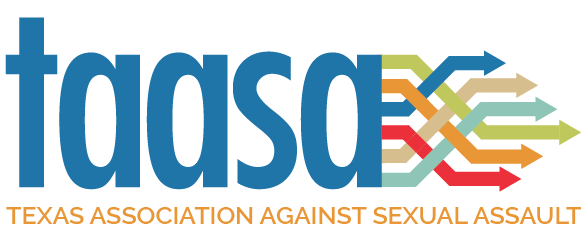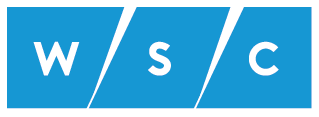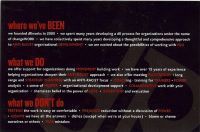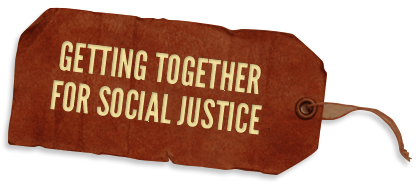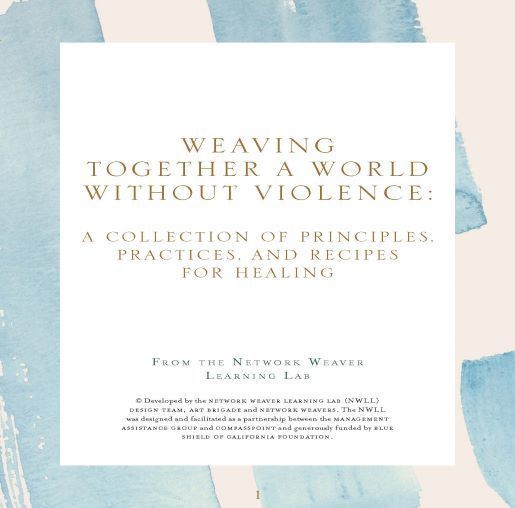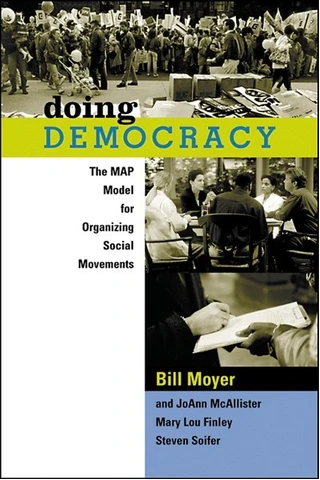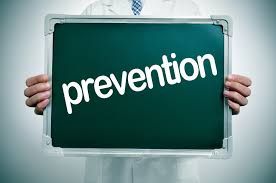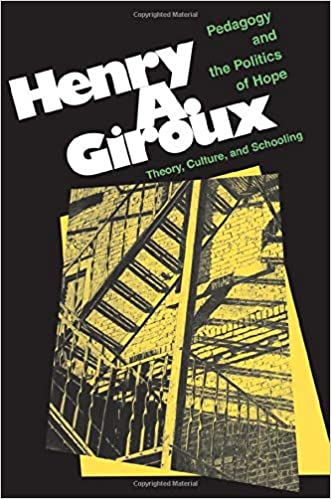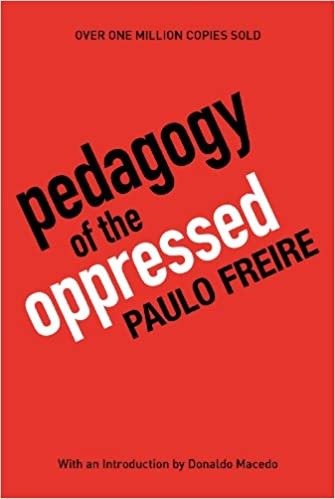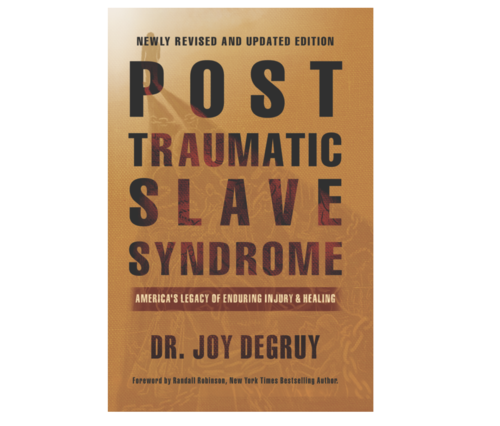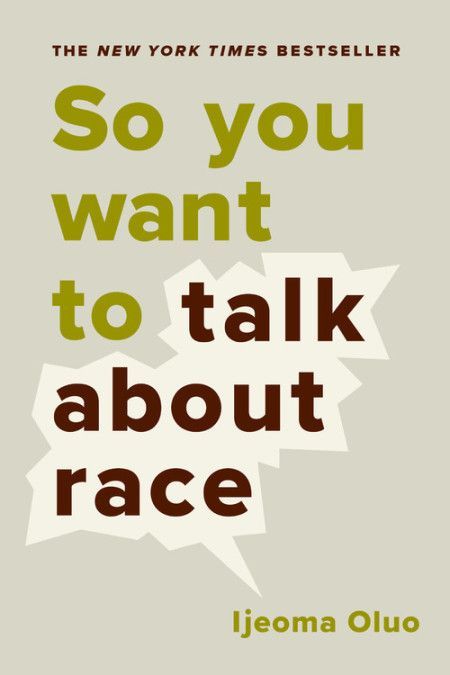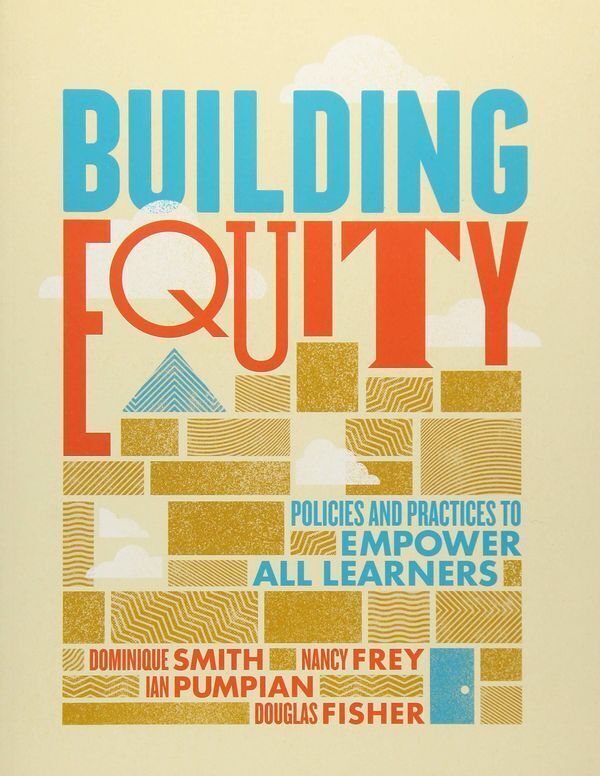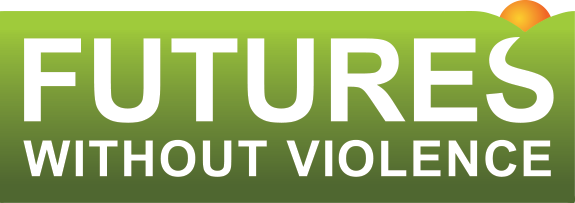Resources contained under this category will address the ways we can, and must, engage with our communities and work to acknowledge the interconnectedness of all forms of oppression – racism, sexism, heterosexism, classism, adultism, ableism, etc. – Challenging imbalances of power are key to creating a healthy and safe community, a community which views all of its members as valuable, ensures access to resources and opportunities and which views violence, including institutional violence, as intolerable and works in partnership and as allies to prevent it.
ARTICLES
-
5 Things White People Should Practice Daily: How to be an Ally.
-
This article written by Nicole Blake Johnson contain a list of questions which are a great starting point for having honest conversations about current racial inequities in workplaces and how to replace cosmetic fixes with impactful change.
-
By Paul Kivel. We can be strong and powerful adult allies to the young people we know if we can shift our emphasis from raising their self-esteem to increasing their power. That, in turn, will allow the exuberance, insight, and creativity of young people to contribute to bettering all our lives.
-
Claims that “defunding the police” will harm women ignore dire problems in policing gender-based crimes today.
-
"Victims and survivors of sexual and domestic violence can’t be used as props to justify the need for policing and incarceration. No one can claim, in good faith, that policing and prisons are addressing our violent crisis of rape culture, when rape is so common in the very prisons that are supposedly rehabilitating offenders."
-
An article by Incite! on how women of color live in the dangerous intersections of sexism, racism and other oppressions.
-
Leading at the Intersections: An Introduction to the Intersectional Model for Policy & Social Change calls on all of us—from the small grassroots organiza-tion to the mighty foundation to legislators—to shift our frame and the way we think about social and policy change. It is a starting point and a tool to begin the conversation of how we turn this important corner without losing individuals, groups and communities along the way.
-
The goal of this series is to highlight the work that folks are doing in to prioritize diversity and inclusivity in their prevention efforts.
-
The assumptions of white privilege and what we can do about it Amy Cooper knew exactly what she was doing. We all do. And that's the problem.
-
NY Times Opinion Piece titled "What is Whiteness?"
-
During our “pause for the cause,” AMKRF has entered a time of organizational reflection and analysis building. As a part of our work, we are sharing reflections about what we’ve learned in the process of building relationships with one another and analyzing power, white supremacy, oppression, alongside liberation.
ACADEMIC ARTICLES AND REPORTS
-
An article about mentoring for social justice - about not just helping those who are younger or less fortunate get ahead, but a challenge to those who are older to take responsibility to help younger people become more effective participants in an inter-generational web of people working to rebuild their communities based on values of respect, inclusion, healing, equity, love, and social justice.
-
This paper makes connections between health equity and our work to prevent sexual and intimate partner violence. It centers the stories of survivors at the intersections of systemic racism, violence, and oppression. It explores ways to build both individual and organizational capacity to address health inequity. And, it offers a call to action for those ready to commit to health equity in their gender-based violence prevention work.
-
By Kimberle Crenshaw. In this article, Kimberle Crenshaw introduces the concept of “intersectionality,” the intersection and interconnectedness of identities, such as race, gender, ethnicity, sexuality, etc.
-
By Joseph Kahne and Joel Westheimer. Drawing on our yearlong study of two dozen K-12 teachers who took part in a university-based effort to promote service learning in area schools, we propose a conceptual scheme that highlights different rationales for service learning. Our goal is not to replace consensus with conflict, but rather to point out the various ideological, political, and social goals that can be promoted by service learning activities in schools.
-
American feminist and activist, Peggy McIntosh, explores the power of white privilege. To prove this power, McIntosh writes out a list of daily effects of white privilege in her life, including never being asked to speak on behalf of all people in a particular racial group, easily renting or purchasing housing, and the ability to swear, dress in second-hand clothes, or not answer letters without having people attribute these choices to race. Once these advantages are acknowledged, however, McIntosh questions what to do with this knowledge. How can people in positions of power dismantle the very systems that empower them? How can we become increasingly aware of our own privilege and the privilege (or lack thereof) of others? How do we transfer power to those who are different than us? These are some of the many questions that McIntosh inspires.
-
Our publications provide background, a scope of the problem, and offer targeted recommendations for advocates, agencies, and policymakers to resolve common challenges facing Women of Color.
RESOURCES FOR EDUCATORS
-
This "Guide to Being an Ally to Transgender and Nonbinary Youth", developed by the Trevor Project. is an introductory educational resource that covers a wide range of topics and best practices on how to support transgender and nonbinary people.
-
Developed through the Violence Against Women with Disabilities and Deaf Women Project of Wisconsin, A Practical Guide for Creating Trauma-Informed Disability, Domestic Violence and Sexual Assault Organizations highlights and explores effective trauma-informed conditions or core values that victims, survivors and people with disabilities find essential for safety and healing. The Guide leads readers on a journey of exploration into the context of these conditions to promote dialogue and understanding, and spur implementation of strategies for domestic violence, sexual assault and disability organizations to become more trauma-informed. December 2011.
-
Texas Association Against Sexual Assault (TAASA) offers these resources to acknowledge how much we owe to Black activism in our anti-sexual violence movement, encourage authentic reflection on our organizational cultures and practices to cease perpetuating harms, and move towards embodying the liberation we hope for every person by eradicating anti-blackness and other root causes of sexual violence.
-
AALBC.com is the oldest, largest, and most frequently visited web site dedicated to books by, or about, people of African descent. Started in 1997, AALBC.com is a widely recognized source of information about Black authors. Mission & Goals:
o Promote literature and literary nonfiction from all over the world to readers of all backgrounds
o Satisfy readers’ book buying needs
o Serve as a resource and platform for aspiring and established writers
o Provide a variety of book production services including book printing and manuscript editing
o Provide a forum for the exchange of opinions on Black literature and culture
o Foster an appreciation for reading and literacy
o Assess and report on the reading habits of African Americans
o Advocate for web equality and independence -
This is a section of the Dismantling Racism Resource Book created by the Dismantling Racism Project by the Western States Center. This section is designed to provide tools to help organizations begin the discussion of their anti-racist organizational transformation.
-
This document was created to be used as a resource for anyone looking to broaden their understanding of anti-racism and get involved to combat racism, specifically as it relates to anti-Blackness and police violence. Within this guide, please find a variety of resources to explore practical ways to understand, explain, and solve seemingly intractable problems of racial inequity, white supremacy, police violence, and injustice.
-
This document is intended to serve as a resource to white people and parents to deepen our anti-racism work. If you haven’t engaged in anti-racism work in the past, start now. Feel free to circulate this document on social media and with your friends, family, and colleagues.
-
This is an organizational assessment tool, an excerpt of a longer self-evaluation tool used by the Dismantling Racism Project - Western States Center, for predominately white organizations and multi-racial organizations of white people and people of color to assess for organizational racism. The assessment contains a sampling of questions is designed to help examine and change the ways an organization replicates larger racist patterns.
-
This is a round-up of various anti-racist resources. Below are several webinars to assist us in taking action! . In addition, this post provides a few resources for people of color such as racial wound healing and therapy/funds dedicated to POC, as well as many recommended anti-racism books, articles, toolkits, YouTube videos, movies/TV shows, podcasts and self care resources for all.
-
Black Lives Matter At School is a national coalition organizing for racial justice in education. We encourage all educators, students, parents, unions, and community organizations to join our annual week of action during the first week of February each year.
-
This eight-chapter manual was developed by WOCN, Inc. staff, advisors and national partners and is intended as a tool for advocates and staff working at Office of Violence Against Women (OVW) funded organizations and community-based advocates seeking to enhance their services to underserved populations.
-
A list of resources to help parents approach their children’s schools to advocate for a more inclusive approach to discussing Thanksgiving. These resources will also be useful for teachers wanting to alter their approach to teaching about Native peoples and Thanksgiving. The toolkit is collected by Gaelle Marcel.
-
This resource book is a compilation of materials designed to supplement a Dismantling Racism workshop. This resource book is never complete. The pages you see here change regularly based on the feedback and critical thinking or workshop participants and others who use them. Resources developed by Western States Center are also available on their website at www.westernstatescenter.org. The Dismantling Racism Project is part of Western States' RACE (Research and Action for Change and Equity) Program. Through training, strategizing and technical assistance, the Dismantling Racism Project is one strategy intended to increase the breadth and depth of racial justice work in the region through supporting organizations to build a shared analysis of race and racism, to engage in anti-racist organizational development and to move racial justice organizing campaigns. The DR Project strengthens the capacity of individuals and organizations doing racial justice work in the West by developing anti-racist leaders; providing training and support to organizations, and creating resources for use throughout the region.
-
Dismantling Racism Works (dRworks) is pleased to offer our workbook and other resources. We hope you find the material here useful to you, your organization, and your community.
This web-based workbook was originally designed to support the Dismantling Racism Works 2-day basic workshop. The workbook is now offered as a resource to the community. If you would, please continue to credit dRworks if and when you use our material.
This web-based workbook is resource dense, so for best results, use a computer to view and use it.
-
As US racial divisions and inequities grow sharper and more painful, the work of envisioning and creating systems of authentic racial inclusion and belonging in the United States remains work in progress. We believe that reversing the trend must begin in our homes, schools, and communities with our children’s hearts and minds. At EmbraceRace, we identify, organize – and, as needed, create – the tools, resources, discussion spaces, and networks we need to meet 4 goals:
o Nurture resilience in children of color
o Nurture inclusive, empathetic children of all stripes
o Raise kids who think critically about racial inequity
o Support a movement of kid and adult racial justice advocates for all children -
These videos and discussion guides are intended to be used by domestic and sexual violence advocates and activists to spark conversations on the ways that racism and oppression have shaped our anti-violence movements and how we can dismantle racism in our organizations and communities. In these videos, you will hear from advocates and organizers who discuss their own experiences, perceptions, and journeys of practicing anti-racism as a means of ending gender-based and intimate violence. We invite you to view these videos with an open heart, on your own or with others.
-
Guide to Being an Ally to Transgender and Nonbinary Youth is developed by the Trevor Project and is an introductory educational resource that covers a wide range of topics and best practices on how to support transgender and nonbinary people.
-
The United States has seen escalating protests over the past week, following the death of George Floyd while in custody of the Minneapolis police. Educators everywhere are asking how can we help students understand that this was not an isolated, tragic incident perpetrated by a few bad individuals, but part of a broader pattern of institutionalized racism. Institutional racism—a term coined by Stokely Carmichael (later known as Kwame Ture) and Charles V. Hamilton in their 1967 book Black Power: The Politics of Liberation in America—is what connects George Floyd and Breonna Taylor with Ahmaud Arbery, Philando Castile, Sandra Bland, Eric Garner, Emmett Till, and the thousands of other people who have been killed because they were “black in America.” This context seems vital for discussions both inside and outside the classroom. The following articles, published over the course of JSTOR Daily’s five years try to provide such context. As always, the underlying scholarship is free for all readers. We have now updated this story with tagging for easier navigation to related content, will be continually updating this page with more stories, and are working to acquire a bibliographic reading list about institutionalized racism in the near future. (Note: Some readers may find some of the stories in this syllabus or the photos used to illustrate them disturbing. Teachers may wish to use caution in assigning them to students.)
-
This web conference presented a basic overview of the importance of addressing anti-oppression work in our efforts to prevent violence against women. The focus of the discussion was on creative brainstorming and sharing of tools and resources for solutions to what can be done at the local level.
-
The following assessment, created by the Dismantling Racism Project - Western States Center, is designed to raise critical issues as organizations and organizers think about their capacity to move a racial justice agenda. This assessment is designed to identify potential barriers to taking on a racial justice focus and outline the preparatory work that may be needed to effectively engage
in and sustain racial justice work. -
Developed through the Violence Against Women with Disabilities and Deaf Women Project of Wisconsin, A Practical Guide for Creating Trauma-Informed Disability, Domestic Violence and Sexual Assault Organizations highlights and explores effective trauma-informed conditions or core values that victims, survivors and people with disabilities find essential for safety and healing. The Guide leads readers on a journey of exploration into the context of these conditions to promote dialogue and understanding, and spur implementation of strategies for domestic violence, sexual assault and disability organizations to become more trauma-informed.
-
Sexual violence & individuals who identify as LGBTQ is an information packet containing nearly a dozen resources focused on serving, engaging, and collaborating with individuals and communities who identify as lesbian, gay, bisexual, transgender or queer or questioning (LGBTQ). The packet contains resources to support counselors, advocates, preventionists, technical assistance providers, and allied professionals committed to affirming all individuals and communities. The goals of this packet are to provide resources that will both strengthen work already being done, as well as assist organizations in discovering a place to begin program development.
This packet includes an Annotated Bibliography, a Research Brief, a Resource List, and guides on Talking about Gender & Sexuality, Creating Inclusive Agencies, the Process of Coming Out, the Impact of Discrimination, Hate & Bias-Motivated Crimes, the Impact on Individuals & Communities, Sexual Harassment & Bullying of Youth, and Transformative Prevention Programming.
-
This is a web conference that presents a basic overview of the importance of addressing anti-oppression work in our efforts to prevent violence against women. The focus of the discussion was on creative brainstorming and sharing of tools and resources for solutions to what can be done at the local level.
-
The Government Alliance on Race and Equity (GARE) is a national network of government working to achieve racial equity and advance opportunities for all. GARE designed this racial equity toolkit to integrate explicit consideration of racial equity in decisions, including policies, practices, programs, and budgets. It is both a product and a process. Use of a racial equity tool can help to develop strategies and actions that reduce racial inequities and improve success for all groups
-
A collection of resources on taking accountability and action for Black lives.
-
This is a working document for scaffolding anti-racism resources. The goal is to facilitate growth for white folks to become allies, and eventually accomplices for anti-racist work. All of these resources have been sourced from other Google docs, or articles — we have simply reordered them in an attempt to make them more accessible. We will continue to add resources.
-
This national program of the Robert Wood Johnson Foundation (RWJF) in collaboration with LTG Associates (LTG,) identified promising practices to prevent intimate partner violence among immigrant and refugee populations in the United States. The program, supported by RWJF from February 2009 to February 2013, gleaned findings from eight diverse programs serving immigrants and refugees with the goal of improving the health and well-being of underserved, vulnerable populations. Through Strengthening What Works, RWJF was able to support emerging programming for IPV prevention that can serve as models for other communities to establish their own innovative programs designed to reduce intimate partner violence in ethnically diverse populations. The initiative also provided support and resources for organizations to building their capacity to serve vulnerable communities and to conduct and utilize evaluations to improve the effectiveness of their programs.
-
A selection of books and articles that discuss racism and oppression, curated by the Oakland Public Library for parents and educators.
-
Teaching for Change provides teachers and parents with the tools to create schools where students learn to read, write and change the world. By drawing direct connections to real world issues, Teaching for Change encourages teachers and students to question and re-think the world inside and outside their classrooms, build a more equitable, multicultural society, and become active global citizens.
-
This website, hosted by Southern Poverty Law Center, is an excellent resource for educators who want to promote diversity, equity, and justice. Here they can find lessons, suggestions, conversation, and support from other teachers who are using lessons from history along with current events to address issues of oppression. Resources also include material that teaches media literacy and nurtures social activism.
-
The Oregon Coalition Against Domestic and Sexual Violence created this toolkit to explore how we can do more strategic interruptions, how we intervene with an awareness of power (ours and others), and how we can avoid harming or re-victimizing ourselves and others in the process of doing anti-oppression work.
-
On any given day, in any given place in the United States, a person is less likely to be stopped and accused of committing a crime – whether they have committed one or not – if he or she belongs to a group that has historically been defined as white for a sufficient period of time in the United States. People defined as white are also are dramatically more likely to have benefits in terms of home ownership, access to quality education and an inheritance based on previous generations’ access to those privileges of whiteness. Almost no one – white or person of color—is individually asking to be privileged or oppressed. At the same time, understanding white privilege in the context of systemic racism and doing nothing about it constitutes colluding in exactly the way the system was set up to work. Here are resources for educators to learn more and to conduct discussions around whiteness and white privilege.
-
The Women of Color Network publications provide background, a scope of the problem, and offer targeted recommendations for advocates, agencies, and policymakers to resolve common challenges facing Women of Color.
-
Created by VAWnet, this collection offers guidance on how to provide accessible, culturally responsive, and affirming services to survivors of all genders.
WEBSITES
-
Paul Kivel, social justice educator, activist, and writer, has been an innovative leader in violence prevention for more than 35 years. The Getting Together for Social Justice website offers a variety of resources that can be used in the prevention of domestic and sexual violence and that address the root causes of all forms of violence. Kivel is the author of numerous books and curricula, including Uprooting Racism: How White People Can Work for Racial Justice, Men’s Work, Making the Peace, Helping Teens Stop Violence, Boys Will Be Men, I Can Make My World A Safer Place, and most recently, You Call This a Democracy?: Who Benefits, Who Pays, and Who Really Decides.
-
SURJ is a national network of groups and individuals working to undermine white supremacy and to work for racial justice. Through community organizing, mobilizing, and education, SURJ moves white people to act as part of a multi-racial majority for justice with passion and accountability.
We work to connect people across the country while supporting and collaborating with local and national racial justice organizing efforts. SURJ provides a space to build relationships, skills and political analysis to act for change.
-
Launched in 2017, the Network Weaver Learning Lab (NWLL) was an 18-month program that created a space for leaders to develop their thinking and practice and to explore and experiment together on ways to advance the movement to end relationship-based violence.
In “Weaving Together a World Without Violence: A Collection of Principles, Practices, and Recipes for Healing,” Network Weavers share their learnings through a downloadable Healing Cookbook. An interactive version of these offerings is available in the Medicine Deck, which enables social justice leaders to engage in their own learning journey.
-
Based in the Pacific Northwest and Mountain States, Western States Center(WSC) works nationwide to strengthen inclusive democracy so all people can live, love, worship and work free from fear. WSC strengthen the organizing capacity of often-marginalized communities, with a particular emphasis on gender justice, racial justice, and tribal sovereignty work. WSC provide training, leadership development, and organizational capacity support to social movements and leaders committed to diversity, equity, and inclusion. WSC convene culture-makers to shift the narrative and use culture as a vehicle for base- and power-building in non-traditional social change spaces. We assist communities and civil society to effectively respond to social movements that exploit bigotry and intolerance.
BOOKS
-
Doing Democracy provides both a theory and working model for understanding and analyzing social movements, ensuring that they are successful in the long term. Beginning with an overview of social movement theory and the MAP (Movement Action Plan) model, Doing Democracy outlines the eight stages of social movements, the four roles of activists, and case studies from the civil rights, anti-nuclear energy, Central America, gay/lesbian, women's health, and globalization movements.
-
By Paul Kivel. What kind of support does a strong white ally provide to a person of color? What does an ally do? Being allies to people of color in the struggle to end racism is one of the most important things white people can do. There is no one correct way to be an ally. Each of us is different. We have different relationships to social organizations, political processes, and economic structures.
-
Henry A. Giroux is one of the most respected and well-known critical education scholars, social critics, and astute observers of popular culture in the modern world. For those who follow his considerably influential work in critical pedagogy and social criticism, this first-ever collection of his classic writings, augmented by a new essay, is a must-have volume that reveals his evolution as a scholar. In it, he takes on three major considerations central to pedagogy and schooling.
-
By Paulo Freire. . First published in Portuguese in 1968, Pedagogy of the Oppressed was translated and published in English in 1970. The methodology of the late Paulo Freire has helped to empower countless impoverished and illiterate people throughout the world. Freire's work has taken on especial urgency in the United States and Western Europe, where the creation of a permanent underclass among the underprivileged and minorities in cities and urban centers is increasingly accepted as the norm. With a substantive new introduction on Freire's life and the remarkable impact of this book by writer and Freire confidant and authority Donaldo Macedo, this anniversary edition of Pedagogy of the Oppressed will inspire a new generation of educators, students, and general readers for years to come.
-
As a result of twelve years of quantitative and qualitative research Dr. DeGruy has developed her theory of Post Traumatic Slave Syndrome, and published her findings in the book Post Traumatic Slave Syndrome – America’s Legacy of Enduring Injury and Healing”. The book addresses the residual impacts of generations of slavery and opens up the discussion of how the black community can use the strengths we have gained in the past to heal in the present.
-
By Paul Kivel. Uprooting Racism offers a framework around neoliberalism and interpersonal, institutional, and cultural racism, along with stories of resistance and white solidarity. It providers practical tools and advice on how white people can work as allies for racial justice, directly engaging the reader through questions, exercises, and suggestions for action. Previous editions of Uprooting Racism have sold more than 50,000 copies because it is accessible, personal, supportive and practical – ideal for students, community activists, teachers, youth workers and anyone interested in issues of diversity, multiculturalism and social justice.
-
Widespread reporting on aspects of white supremacy — from police brutality to the mass incarceration of Black Americans — has put a media spotlight on racism in our society. Still, it is a difficult subject to talk about. How do you tell your roommate her jokes are racist? Why did your sister-in-law take umbrage when you asked to touch her hair — and how do you make it right? How do you explain white privilege to your white, privileged friend?
In So You Want to Talk About Race, Ijeoma Oluo guides readers of all races through subjects ranging from intersectionality and affirmative action to “model minorities” in an attempt to make the seemingly impossible possible: honest conversations about race and racism, and how they infect almost every aspect of American life.
-
By Dominique Smith, Nancy Frey,, Ian Pumpian, Douglas Fisher. This book discusses the differences between equity and equality within a school. It also provides tools and examples to go about transitioning a school in order to create a more equitable environment.
VIDEOS
-
These videos and discussion guides gathered together by Futures Without Violence are intended to be used by domestic and sexual violence advocates and activists to spark conversations on the ways that racism and oppression have shaped our anti-violence movements and how we can dismantle racism in our organizations and communities. In these videos, you will hear from advocates and organizers who discuss their own experiences, perceptions, and journeys of practicing anti-racism as a means of ending gender-based and intimate violence. We invite you to view these videos with an open heart, on your own or with others.
-
This is a four-part virtual webinar series, led by Zoe Flowers from Women of Color Network, to explore the way forward as victim service providers continue to pivot and adapt as a result of the current health crisis and also leverage this moment of change to better support crime victims from communities of color.
Black Lives Matter Protests | BrainPOP
Use this movie to teach your kids about the mass protests happening in cities around the world.
Culturally-Informed Prevention: Preventing sexual and domestic violence in communities of color
Sponsored by CALCASA. Presenters in this webinar recording will share how they consider history and social and culture norms to not only resonate with communities, but also build on strengths to prevent sexual and domestic violence.
Nothing for Us Without Us: Troubling Affinity Spaces in Times of Catastrophe
Sponsored by CALCASA. This workshop will share strategies by Black Women’s Blueprint where Black feminists have devised new praxis and evolved pedagogies of prevention at the intersection of radical models of restorative justice, truth and reconciliation and full criminal justice system abolition. The workshop invites us into work grounded in spirit. Building on the CDC adopted socio ecological model, the workshop will detail how we can use actual physical spaces inside our communities for liberation and application of eco psychologies to prevent racist and misogynist violence. It will detail how we can fashion interventions responsive to the profound effects of injustice, violence and exploitation on our psychological, communal and ecological well being. The workshop will detail how a commitment to co-creating vibrant communities while surfacing indigenous understandings of human connection with the natural world can save us all.
UNRAPABLE: Racism, Hypersexualization, and Sexual Assault in Black Communities
Sponsored by CALCASA. In this presentation, Nwando Ofokansi from the Katie Brown Educational Program links anti-black racism and oppression to the prevalence of sexual violence in Black communities. The presenter provides a historical background of racism in Black communities and highlights the connection to the silence of Black female rape survivors. Using real-life case studies and examples from media, interactive exercises and discussions, this workshop teaches better and effective ways of preventing and responding to sexual violence of Black women and provides recommendations for best practices.


